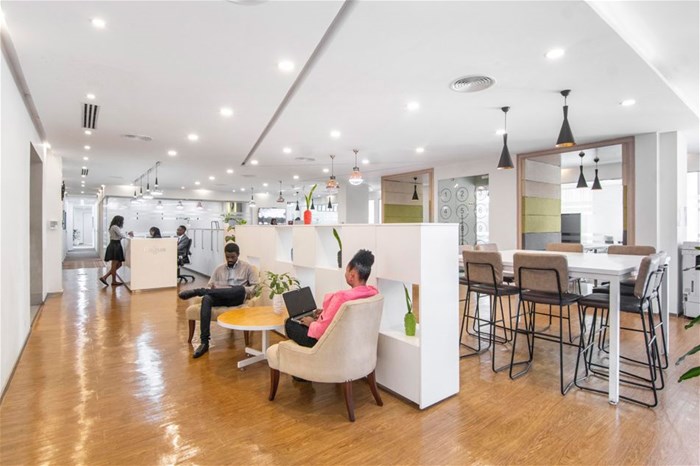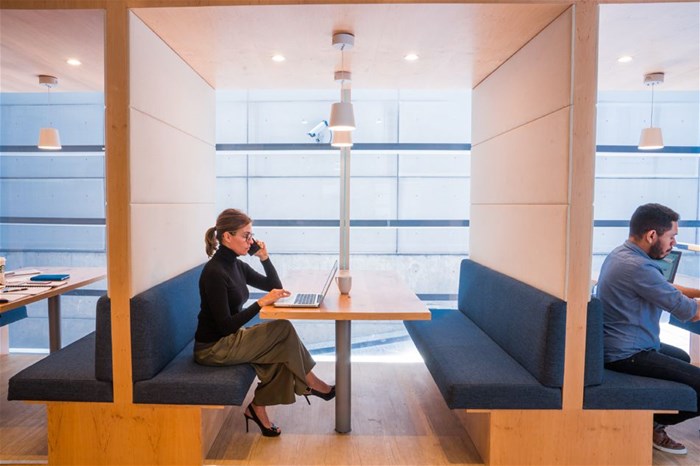
Top stories






More news


Marketing & Media
Ads are coming to AI. Does that really have to be such a bad thing?














The rapid expansion slowed a little, and then the pandemic came, which has since spurred renewed interest from landlords facing an excess of empty offices. As many employees’ perception of the workplace changes, office owners are actively increasing the amount of space in their buildings dedicated to flexible working. A smart move given the status quo.
Despite the obvious impacts of Covid-19 on office space, flexible workspaces look to be emerging as a strong offering and solution, for a return to and future of our work environment for both tenants looking for flexibility and landlords wanting to differentiate their assets. The global pandemic has people working from home, companies rethinking their workplace strategies, and commercial real estate players recognising the need for flexibility.
At a time of increased vacancies for traditionally leased offices and decreased member capacity, coupled with revenue opportunities for co-working spaces and the turn towards a hybrid model of working, there’s growing adoption of a different operating model that benefits both landlords and flex spaces. Management agreements, also called operating agreements, are gaining popularity because they can help provide greater resiliency for building owners.

In its simplest form, a management agreement is a partnership between a landlord and a co-working or flex space operator. The property owner is incentivised to fill vacant space, and the space operator has the ability to manage the coworking space. In a management or operating agreement, both parties agree to share revenue generated from the co-working space.

“This is an increasingly popular trend and SA’s listed property sector continues to expand its flexible workspace footprint, primarily through partnerships with flexible workspace operators,” says Gregory Davis, business development director, Africa, IWG Plc., the largest global flexible workspace provider.
“Commercial real estate landlords have an option to take over the ownership of the space themselves, and work in conjunction with a flex operator to redesign and run the space as a flex space under a management agreement; fast-tracking the ability to return to a normalcy of operations in their space quickly,” Davis adds.
Property companies have access to a necessary element of the industry: physical space. Yet, there’s more to the serviced office industry than location and space. Property management and co-working may be related, but they are two very different specialties. Having the access to space, does not mean that they know the ins and outs of operating a flexible workspace.
“Co-working spaces are like hotel businesses. Heavily geared toward hospitality and requires a lot more work, consistency and engagement than many landlords may be accustomed to or interested in providing. It’s about the bottom line, it’s about efficiency of management, it’s about practical management of the community and services,” Davis points out.
Often it is best described as the outsourcing by a property owner to an operator of the sales, marketing and all revenue generation of an asset as flexible workspace under the terms of a service agreement. These agreements are quickly becoming a favoured route for commercial property owners as it can provide a lower risk than directly investing in a flexible workspace operator or running their own operation.
Management agreements give landlords more control, a direct relationship with their tenants and promotes loyalty to their asset. Additionally, a flex-space properly positioned and designed can be more profitable to a landlord than traditional leasing.

Benefits to the building owner:
The successful property owners of the future will be those who understand that space is now a service. In seeking to capitalise on this they will need to consider their approach to flexible workspace carefully. For many of the larger property owners, launching a flexible offer just makes sense. But partnering with a flexible workspace operator, ideally through a joint venture management agreement, probably offers the best model to ensure most property owners secure the robust returns they are seeking.
With the demand for flexible workplace solutions rapidly outstripping supply and offering favourable returns vs conventional leases at market rent, a partnership with a market leader who has an established customer base and a proven business model, sees investors taking note of this golden partnership opportunity in flex-space.
In the end, it all boils down to creating a business model strategy that will allow you to be flexible enough to provide short-term space, without exposing your brand too many economic cycles and flexible workspace is continually providing that opportunity for landlords and leaders alike.
IWG is the global operator of leading workspace providers. Our companies help more than 2.5 million people and their businesses to work more productively. We do so by providing a choice of professional, inspiring and collaborative workspaces, communities and services.
Digitalisation and new technologies are transforming the world of work. People want the personal productivity benefits of living and working how and where they want. Businesses want the financial and strategic benefits. Our customers are startups, small and medium-sized enterprises, and large multinationals. With unique business goals, people and aspirations. They want workspaces and communities to match their needs. They want choice.
Through our companies we provide that choice, and serve the whole world of work: Regus, Spaces, No18, Basepoint, Open Office and Signature. We create personal, financial and strategic value for businesses of every size. From some of the most exciting companies and well-known organisations on the planet, to individuals and the next generation of industry leaders. All of them harness the power of flexible working to increase their productivity, efficiency, agility, and market proximity.
https://www.iwgplc.com/
https://www.facebook.com/RegusGlobal
https://www.linkedin.com/company/iwg-plc